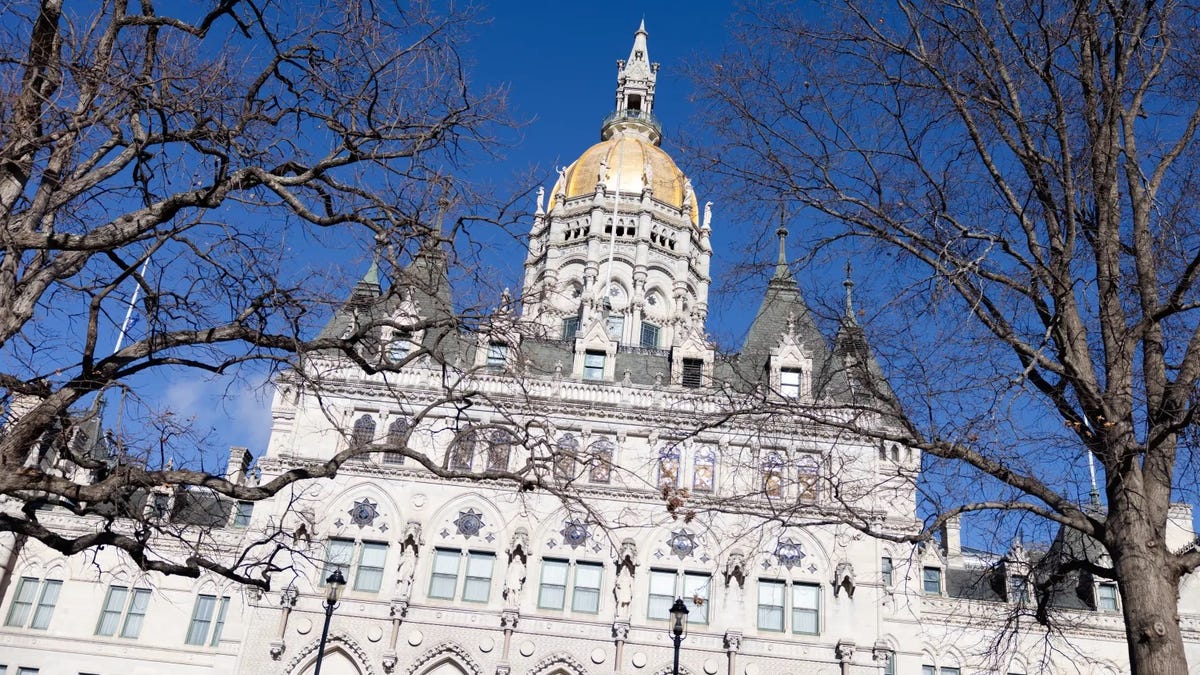Over seven dozen Connecticut laws concerning a range of issues, from regulations around e-bikes and helmets to hunting on Sundays, will wholly or partially take effect on Oct. 1.
Connecticut laws are passed by the General Assembly during the legislative session each year — this year’s ran from Jan. 8 to June 4 — or in a special session. They typically take effect on Jan. 1, July 1 or Oct. 1.
Here’s a look at some of the laws that will be implemented next month.
An overhaul of Connecticut’s century-old towing statutes takes several steps to make it harder to tow vehicles from private property and easier for drivers to retrieve their vehicles after a tow.
State law allows tow companies to begin the process of selling a towed vehicle with a value of $1,500 or less after 15 days, among the shortest windows in the country. The new law still allows towing companies to start the sales process after 15 days, but they will now have to take more steps to give the owner a chance to claim the vehicle and the actual sale couldn’t go through until 30 days after the tow.
It also requires towing companies to accept credit cards and doesn’t allow them to tow vehicles immediately just because of an expired parking permit or registration. Vehicles can’t be towed from private property without notice unless they’re blocking traffic or fire hydrants or are parked in a handicapped accessible spot.
The bill was passed following an investigation by The Connecticut Mirror and ProPublica that showed how state towing laws have come to favor tow companies at the expense of vehicle owners.
A Connecticut Department of Motor Vehicles working group is poised to examine portions of the state’s towing law that range far beyond its original mandate, potentially leading to more extensive reforms.
As of Oct. 1, Connecticut will permit hunting on Sundays — with some limitations.
The new law allows Sunday hunting, but limits it to private property and prohibits any hunting within 40 yards of a blue-blazed or federally designated hiking trail. The bill also prohibits the hunting of migratory birds on Sundays.
Hunters fought unsuccessfully for decades to overturn the state’s ban on Sunday hunting, which they have described as the last of Connecticut’s historic “blue laws.” In 2015, lawmakers partially repealed the ban for bow hunters.
A new law raises the age under which motorcycle drivers and passengers are required to wear a helmet from 18 to 21, with a minimum $90 fine for infractions.
That law also requires that children under age 18 wear a helmet while riding vehicles like bicycles, scooters and skateboards. Previously, only children under age 16 were required to wear a helmet.
Another new law classifies some e-bikes, which previously lacked regulation around licensing and registration, as motor-driven cycles or motor-driven vehicles.
The law classifies e-bikes without pedals and with batteries over 750 watts as motor-driven cycles, which require a driver’s license to operate but are not required to be registered with the state.
E-bikes with batteries over 3,500 watts will be classified as motor-driven vehicles. It’s essentially the same classification as motorcycles and requires that vehicles be registered and insured.
Additionally, since e-bikes can be easily modified to reach speeds upwards of 60 miles per hour, the new law generally requires people who change an e-bike’s speed capability to label the vehicle with the appropriate modification.
Police officers will now largely be prohibited from putting handcuffs on children under age 14, except in cases where handcuffing is necessary for public safety or the child is using or threatening physical force against an officer.
Existing law states that restraints like handcuffs be removed from a child before and during a court appearance. That law was unchanged.
Connecticut law will now prohibit first cousins from knowingly marrying each other. Children born to first cousins are at an increased risk of genetic disorders and birth defects.
Existing Connecticut law, which remains in place, prohibits a person from marrying their parent, child, grandparent, grandchild, sibling, parent’s sibling, stepparent or stepchild.
Gabby DeBenedictis is a reporter for The Connecticut Mirror (https://ctmirror.org). Copyright 2025 © The Connecticut Mirror.












